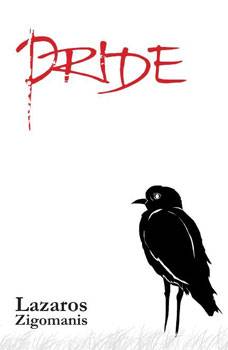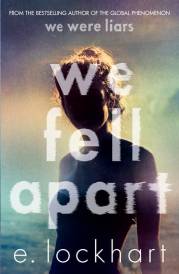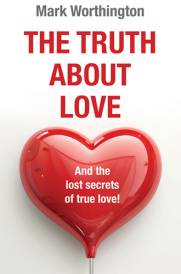Pride

Pride
Dreams mean nothing unless you have
the courage to pursue them
Luke Miggs wants more than what small-town life has to offer – the grind of chores on the family farm, playing footy, and drinks with friends. At 18, is it too late to dream? In what begins a story about a young guy and his love of football, comes a story about so much more. The narrative follows the mystery behind the emergence of a freakish Aboriginal footballer into their country football league and his ability to change and affect the lives of those around him.
Pride (busybird publishing 29.95) is an enthralling coming of age story about friendship, bonds, and how the choices of our past can come back to shape our future. Engagingly written, the narrative explores the themes of racism and responsibility in an entertaining yet thought provoking manner. It is a must read for any young adult reader.
$1 from every book will be donated to the Indigenous Literary Foundation.
Lazaros Zigomanis has been writing for many years with short stories and articles published in various print and digital journals, three screenplays optioned, and had unpublished novels and unproduced screenplays place in various competitions.
Lazaros also runs workshops on writing novels, introduction to fiction, and editing. This is his first foray into young adult fiction.
Pride
busybird publishing
Author: Lazaros Zigomanis
ISBN: 9781925585247
RRP: $29.95
Interview with Lazaros Zigomanis
Question: Why did you decide to write Pride?
Lazaros Zigomanis: I had the basic premise for what became Pride back in the early 1990s – the story about a mercurial footballer. Over the years, I'd think about the idea. One thing I realised was it would be impossible to place it in the AFL, because that would involve too much specificity in terms of the club he played for, and (lots of) fans of other clubs probably wouldn't be attracted to the story. Then the idea started to metamorphosis. I saw the country league – it would be a microcosm for both societal and sporting rivalries, and that would stimulate other aspects of the story, e.g. being set in a small town, the protagonist wanted to get out and play football in the big-time. Also, with a small town, there was a closeness with the people and a sense of geographical identity, the way the then-VFL teams used to have, e.g. Collingwood came from a working-class suburb, and they represented the working club. So the idea kept evolving, so it became a network of ideas – some known to me before I sat down to write, and others which I discovered myself in the writing. As I went on, and as I revised, I started to see and develop the more important themes, e.g. racism, pursuing dreams, and family.
Question: Who did you specifically write Pride for?
Lazaros Zigomanis: With whatever story I write, I write it for people who want to open up a book, and in the time they read, they escape into this world, invest in these characters, and follow their journey. If there was a specific drive as far as this one goes, I think it would be for people who have dreams and aren't sure about chasing them, and who also believe in a little bit of magic.
Question: What message do you hope readers take from Pride?
Lazaros Zigomanis: Some things are worth standing up for, rather than being part of some collectively apathy. Some dreams are worth chasing.
Question: What was the best thing about creating the character of Luke?
Lazaros Zigomanis: Luke is an everyman, just a normal guy whose life could go not turn out as fulfilling as he wants – he could easily be somebody who, when he turns 30 or 40, looks back and thinks he didn't pursue his dreams as hard as he could've, or should've. But he finds it in himself to start chasing those dreams and to realise that it's not really about whether he makes it or not. Obviously, it would be great (for him) if he did. But it's about putting everything he can into it, because when he gets to that age and starts to reflect, he wants to be able to answer that he did try. A product of that also is his gradual awakening to the racism that goes on around him, and how everybody just takes it for granted. Some things become ingrained culturally and societally and you don't respond as you should. But he sees that some things are worth standing up for. As an aside, I also want to highlight the character of Amanda (who becomes Luke's girlfriend). I hope a lot of readers are drawn to her. Luke is a bit wishy washy through the book, just drifting along, and it's Amanda who focuses him simply through her example – she has her own dreams and she's pursuing them. She's doing everything she can to make them real. She's strong, she's assertive, she highlights the racism when it occurs, she stands up for what she believes in. I think she's a really positive female role model.
Question: Why have you chosen to support the Indigenous Literary Foundation with the sales of this book?
Lazaros Zigomanis: 3 out of 4 Indigenous over the age of 15 leave school before year 12. Statistically, Australia's Indigenous young are the most disadvantaged people in the country, which is staggering when you think about it. Literacy for me has always been one of the most important skills you can learn – to read recreationally, to read educationally, just to read to navigate life and open opportunities. Given the themes in Pride of social injustice, it seemed logical that a portion of profits could be donated to the Indigenous Literacy Foundation, which would help Indigenous pursue opportunities that might not be available to them right now.
Pride
busybird publishing
Author: Lazaros Zigomanis
ISBN: 9781925585247
RRP: $29.95
Interview by Brooke Hunter
MORE





